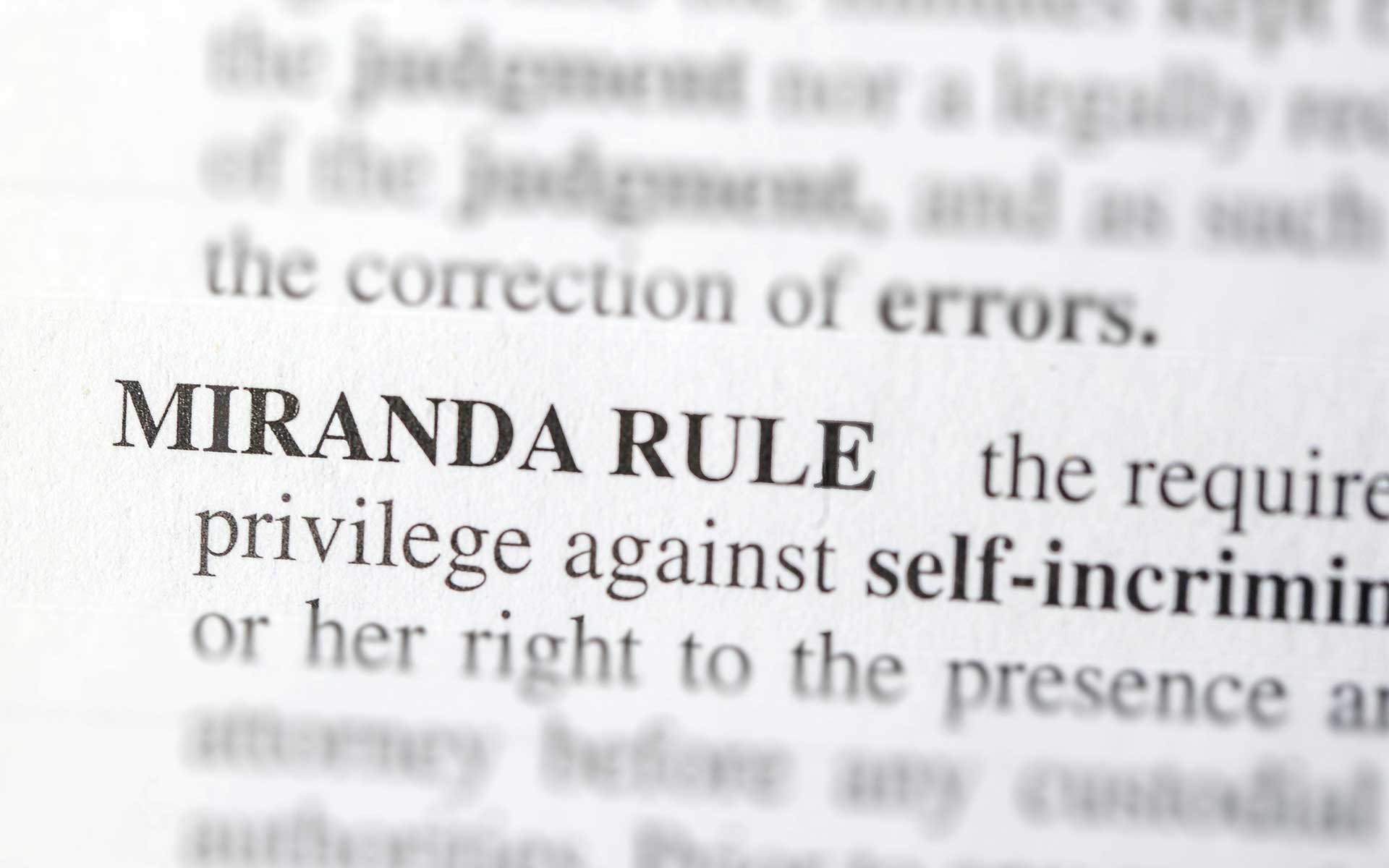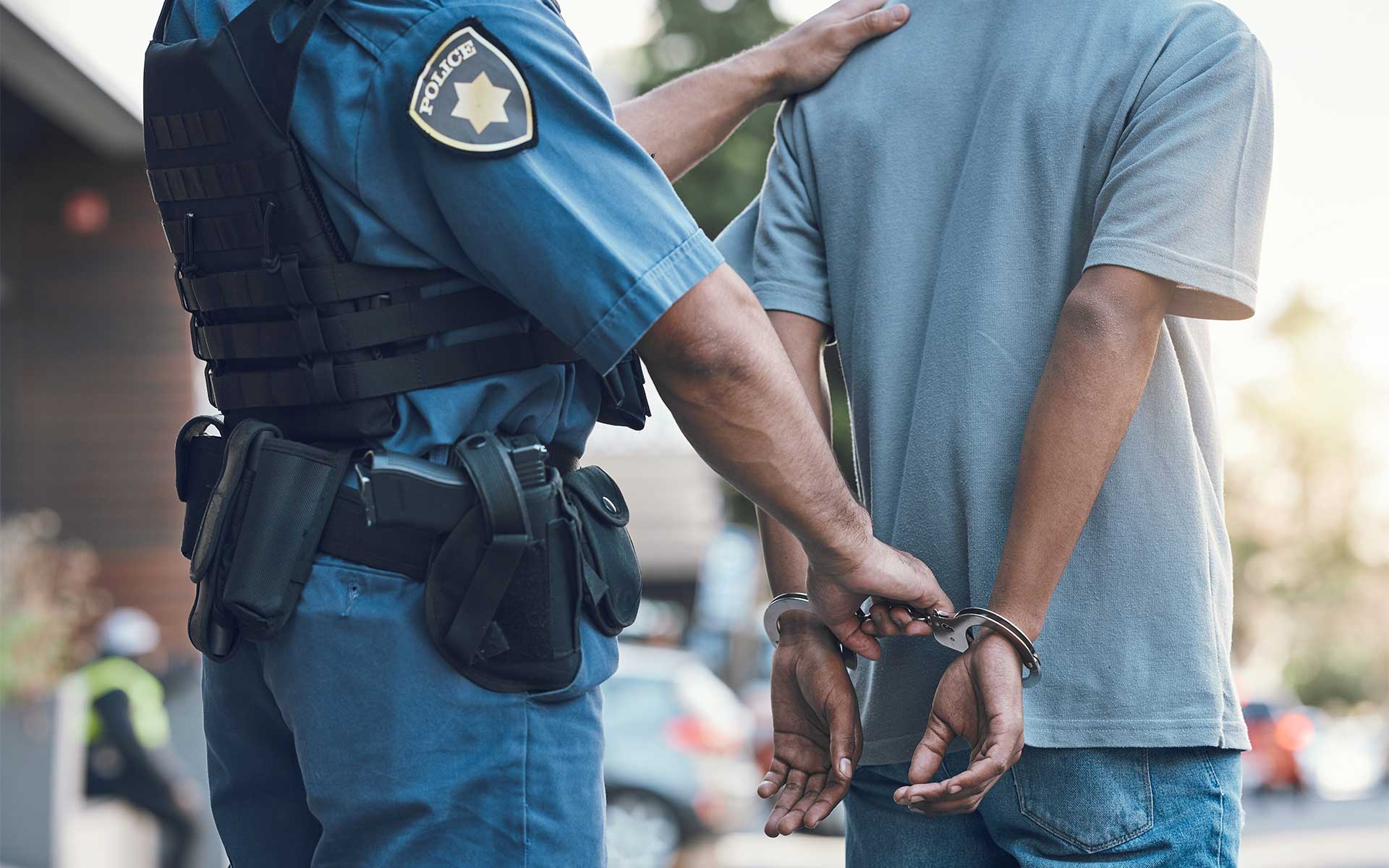
A Miranda Warning, also commonly referred to as the Miranda Rights, is familiar to most thanks to popular shows and movies depicting suspect arrests. The familiar words recited by officers about the “right to remain silent” and “right to an attorney” are well publicized and carry great significance within the US legal and judicial system.
However, few truly understand why the Miranda Warning is critical to upholding our constitutional rights and the integrity of criminal justice proceedings. For example, what is the role of Miranda Rights during arrests? Are Miranda rights read for every arrest? If not, then when are Miranda Rights read in Texas? Are there Texas juvenile Miranda Rights?
Today’s post will answer these questions and thoroughly explain Miranda Rights in Texas, including the origin. We will also clear up any confusion around when Miranda Rights apply during arrest proceedings. After all, it’s critical to understand these rights should you or a loved one ever end up in a situation where invoking the Miranda Warning can affect the outcome of an arrest.
Texas Miranda Rights: What Are They?
When someone is taken into custody and interrogated by police, they have specific rights afforded under the US Constitution, specifically the 5th and 6th Amendments. These are the Miranda Rights, and they ensure that suspects are aware of their constitutionally guaranteed privileges, such as the right to remain silent and the right to legal counsel.
Essentially, Texas Miranda Rights law safeguards individuals during police interrogations by helping prevent false confessions and self-incrimination, especially under the pressure of long questioning sessions. Although the wording may vary slightly between jurisdictions, the elements required include:
- The right to remain silent, i.e., refuse to answer any questions. (However, remaining silent does not result in charge dismissal or an option to skip the trial.)
- The right to an attorney, i.e., the option to consult with an attorney before and during police questioning.
- If you cannot afford an attorney, the court will appoint one.
- A spoken warning that anything said during questioning can be self-criminating or used against them in a court of law.
The History of the Miranda Rights - Who is Miranda?
The Miranda Warning evolved from the 1966 Supreme Court case Miranda v. Arizona. Ernesto Miranda was a 24-year-old man with a police record accused of kidnapping, raping, and robbing an 18-year-old girl in Arizona. When arrested and interrogated by police, which lasted for two hours, he confessed to the crimes.
Miranda agreed to formalize his confession in a written statement: “This confession was made with full knowledge of my legal rights, understanding any statement I make may be used against me.” This statement was the sole evidence used to try and convict Ernesto of his crimes in his Arizona trial. However, Miranda’s lawyer (and later the American Civil Liberties Union/ACLU) questioned whether the confession was genuinely voluntary, asking the court:
“Was [Miranda’s] statement made voluntarily?” and “Was [he] afforded all the safeguards to his rights provided by the Constitution of the United States and the law and rules of the courts?” 1
Ultimately, the Supreme Court agreed and reversed the Arizona Supreme Court decision, declaring that Ernesto Miranda’s confession was inadmissible as evidence in a criminal trial because his Fifth and Sixth Amendment rights to remain silent and to have an attorney present were not made clear before or during his interrogation. This 1966 landmark decision established the Miranda Warning, a police procedure that ensures arrested suspects are clearly informed of their rights when detained and interrogated.
The Importance of Miranda Rights in Texas Criminal Cases

In criminal cases, the Fifth Amendment to the US Constitution guarantees the right to a grand jury, forbids “double jeopardy,” and protects against self-incrimination. The Sixth Amendment also outlines the rights afforded to defendants during criminal prosecutions, including the “Assistance of Counsel for his defense.” These are the tenets of the Texas laws on Miranda Rights.
Why are these constitutional rights important during criminal proceedings? Facing police custody and questioning for a crime can be intimidating and stressful, at times leading suspects into making statements that can negatively affect a trial outcome. Therefore, the accused must understand that they have the right to remain silent and have an attorney present at any time before or during the custodial interrogation.
However, invoking Miranda Rights is never assumed, so the accused must clearly state their intentions to remain silent, seek an attorney, or both.
When Are Miranda Warnings Not Required?
Understanding custodial interrogation is essential in determining when law officers must administer Miranda warnings to suspects. Under Texas Miranda Rights law, a police officer must provide a Miranda warning before engaging in a custodial interrogation unless an exception applies.
What is custodial interrogation? First, “custodial” or custody is any situation where a person lacks freedom of action. Therefore, even if that person is not officially arrested or restrained by the police, it’s considered custodial if freedom of movement is restricted. Second, interrogation is questioning, including comments or actions made by an officer that are likely to produce an incriminating reply.
Texas laws on Miranda Rights specify that a Miranda warning is not required when an officer has reasonable suspicion to stop someone and ask basic questions. In other words, a Texas Miranda Rights card reading doesn’t apply if the officer’s questioning is part of a routine booking process (such as basic identifying information) or the information gathered is not intended for use as evidence in a criminal case.
Other Texas Miranda Rights law exceptions include:
- When there is an immediate and significant danger to the public
- Standard booking questions
- Traffic stops/violations
- Statements acquired through a jailhouse informant
- Questioning of anyone not in police custody
However, even when a Miranda warning isn’t warranted, an individual uncertain about talking to a police officer can always “plead the Fifth”, which is the right to remain silent. Doing so allows them to speak to a lawyer or investigate their rights before any further police interrogation. Also, the police or prosecutors cannot use the option to remain silent against the individual at trial.
Do Juveniles Have Miranda Rights?
Yes, Texas juvenile Miranda Rights are the same as an adult’s when facing police custodial interrogation. However, in addition to issuing a Miranda warning, Texas Miranda Rights law requires that officers make a reasonable effort to notify the juvenile’s parent, guardian, or custodian as soon as possible when taking a juvenile into custody. Furthermore, the officer should inform the parent or guardian of the nature of the offense and the juvenile’s location.
Not Read Miranda Rights in Texas - What Happens?

When the police fail to adhere to the Texas Miranda Rights law and perform a custodial interrogation without Mirandizing the suspect, and there is no evidence of a waiver of these rights, it’s a violation of Miranda Rights. It’s best to contact an experienced criminal defense attorney immediately if this occurs.
When a criminal defense attorney can prove to a judge that a Miranda warning did not occur before a police interrogation, anything said while in custody will not be admissible in court. That means the prosecution cannot use the contents of the interrogation in a case against the defendant, making it harder for them to prove guilt beyond a reasonable doubt.
Questions About Miranda Rights in Texas?
The Texas legal and judicial systems are not without fault, and breaches of constitutional rights can occur, such as in cases where Miranda rights were violated. At GHC Law in Austin, TX, we take rights violations very seriously and will pursue all means possible to seek justice.
As experienced Texas defense lawyers, we thoroughly understand the Texas legal system and will do everything possible to uphold your constitutional rights and fight for your future. The criminal justice system does offer protections, but you need a case-winning Austin criminal defense attorney with the experience, knowledge, and determination to help – that’s GHC Law Firm.
Contact GHC Law about your Texas Miranda Rights or any criminal defense questions!
Miranda Rights Texas FAQ
Do you have to be read your Miranda rights when handcuffed in Texas?
Only sometimes. Texas state law on Miranda rights specifies that a Miranda warning is required when someone is in custody and facing a police interrogation, i.e., custodial interrogation. So, if you are handcuffed and not questioned by the police, they may not issue the warning.
Can I remain silent during a police stop even if a Miranda warning isn’t required?
You always have the Fifth Amendment right to remain silent, whether Mirandized or not. However, answering simple questions required for the booking process, such as confirming your identity, must be answered – not doing so may result in an arrest for refusing to cooperate.
Can a case be dismissed if not read Miranda Rights in Texas?
Cases are rarely dismissed solely because of failure to adhere to the Texas state law on Miranda Rights. However, not issuing a Miranda warning when required can suppress the police interrogation. Therefore, anything said during that questioning, no matter how long it took, cannot be used against you in the courtroom, making it more difficult for the prosecution to prove guilt beyond a reasonable doubt.


